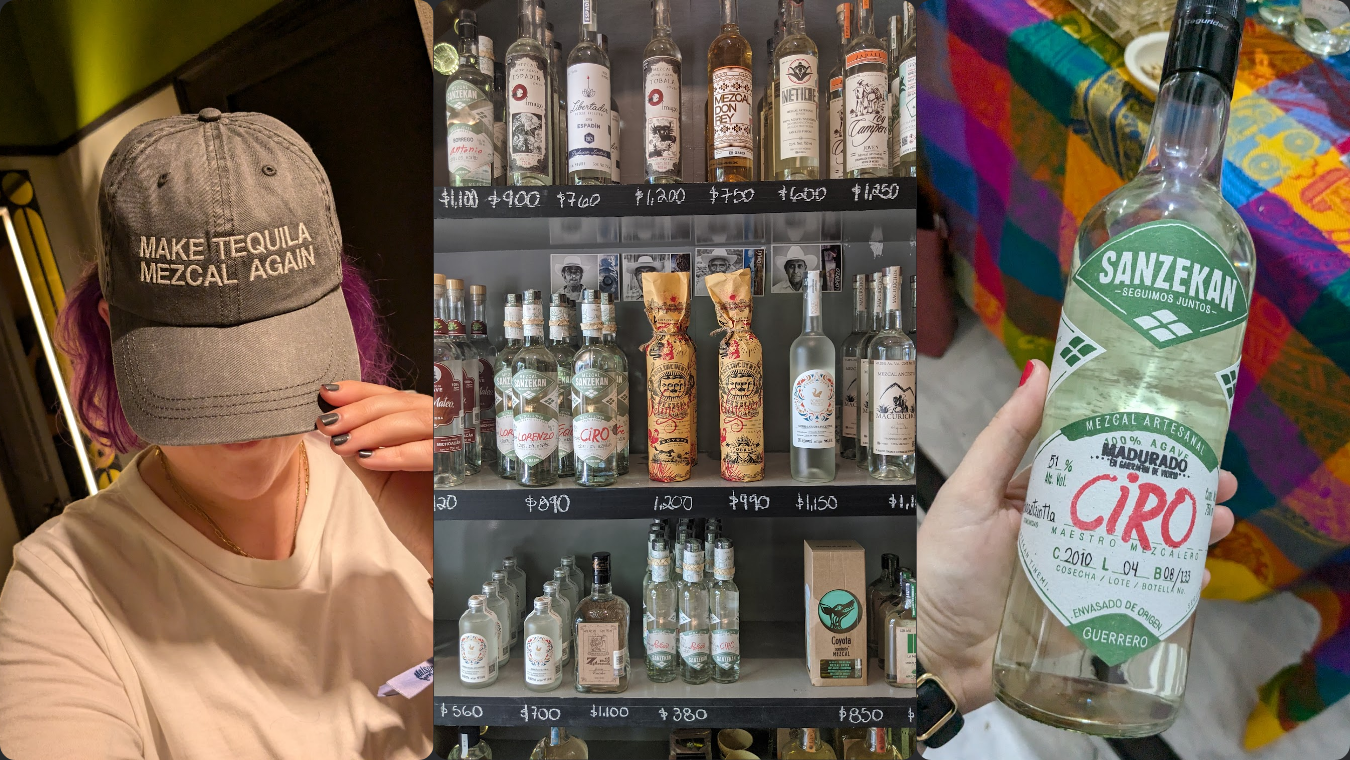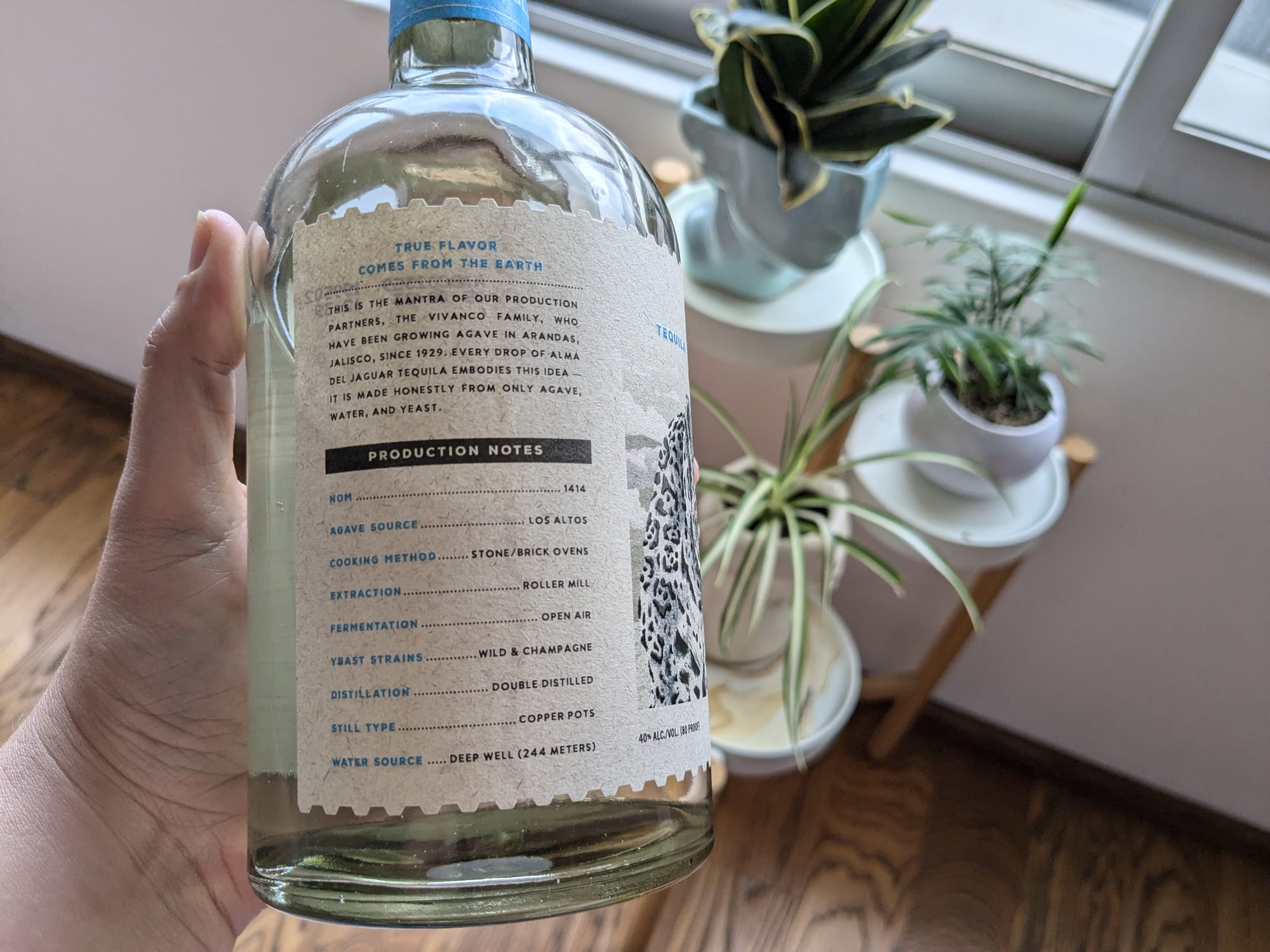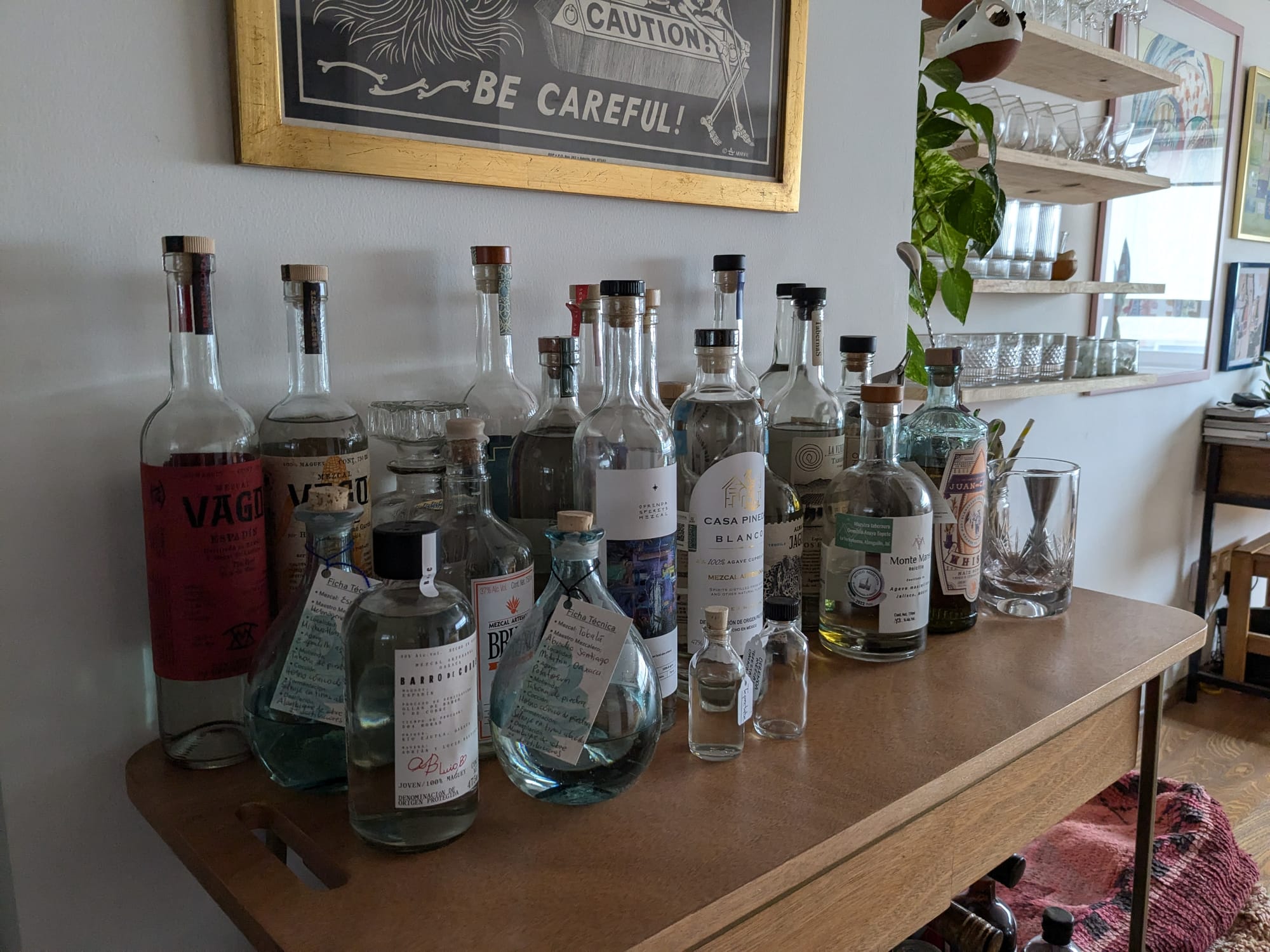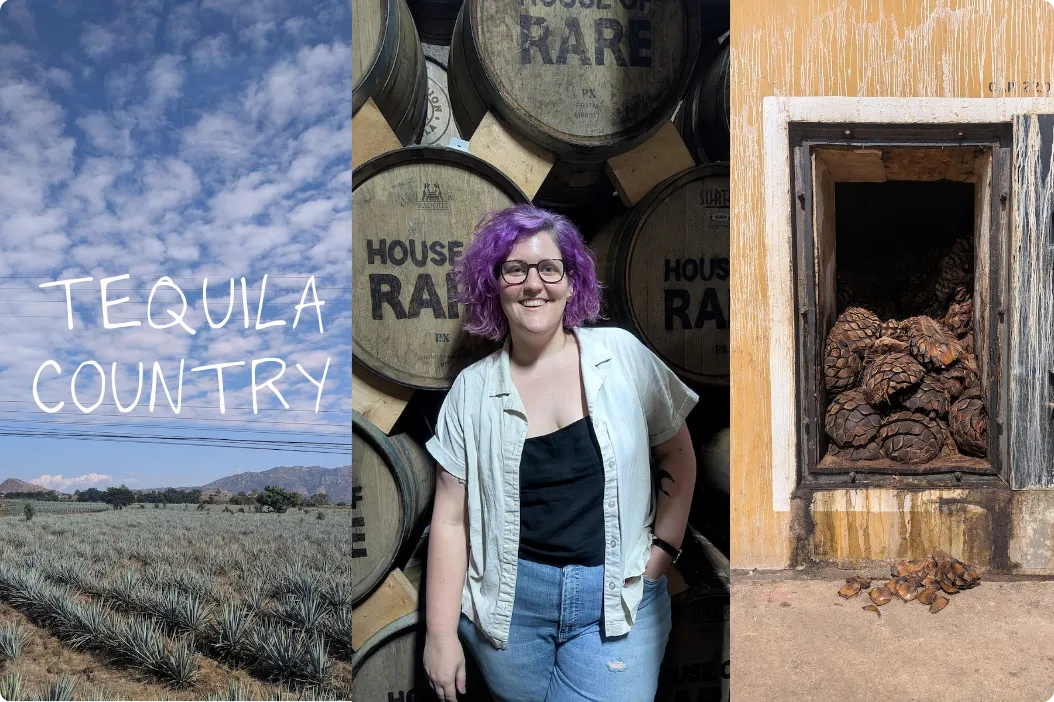
Mezcal is a fast-growing category. There are hundreds of brands to choose from, and it's not easy to navigate all the jargon on bottles.
Do you want joven or anejo? What's the difference between artisanal and ancestral? Is sotol a type of mezcal?
It's a lot to wade through when you're standing in the middle of the liquor store, just trying to find a decent bottle that won't break the bank.
Well, I'm here to help! But first, an important note...
Mezcal is an agricultural product
Most spirits are industrial products that can be scaled up and down based on demand. Mezcal does not work this way.
For starters, it takes 3-15 years for many agaves to reach maturity. And, once you’ve harvested them, the plants don’t regrow the following year like wheat, grapes, and other crops do. You have to start all over!
This leads to problematic practices for meeting increased demand. Deforestation, soil erosion, water pollution... and even damage to local bat and hummingbird populations. All of which have long-term side effects for the communities producing mezcal and for the agave plants themselves.
If we want to enjoy great agave spirits for years to come, we need to support the brands that take care of their plants and their communities.

Your Tequila Cheatsheet
- Look for "100% agave" on the bottle. Anything else is a "mixto," which means that up to 49% can be cheaper sugars. It's going to give you flashbacks to college and a hangover the next morning. Just don't do it!
- Check for production details on the bottle. Few tequilas share any real details about their production at this point, so it's always a good sign when they want you to know more.
- Google the company owner 🙃 The millions made by celebrity-owned brands rarely trickles back down to the people making them. And the vast majority of those producers are second and third-generation tequileros whose families were the ones who kept the tradition alive when there was no money in it. They deserve to be the ones who profit now, so support Mexican-owned and producer-owned brands when possible!
A sidebar about additive-free tequila
Tequila brands can use small amounts of approved additives such as glucose, caramel coloring, and wood extract in their product and still call it "100% agave."
You don't need those additives if you're making the tequila the right way IMO, so I try to avoid them. For political reasons, brands can’t advertise as “additive-free,” so this is easier said than done!
This is a huge conversation in the industry right now.
Diageo, the producer of Casamigos and Don Julio, is being sued for not disclosing their use of additives. And Patrón, which is confirmed to be additive-free, is raising awareness with a genius and far-reaching marketing campaign. (If you have to buy a big brand, I’d buy Patrón.)
For now, if you want to buy additive-free tequila, the best you can do is Google the brands you're considering and look for independent write-ups.

Your Mezcal Cheatsheet
- It says ancestral or artisanal on the bottle. These are official categories of mezcal production. Some industrial brands sneak into the artisanal category (looking at you, 400 Conejos, cough Jose Cuervo cough), but it’s a good place to start.
- It has production details. Good producers want you to know all the work they’ve put into making their mezcal, so they include fermentation and distillation details on the bottle. Even if you don't understand what they mean, you should only buy bottles that have this information. (The exception is unlabeled bottles bought directly from a producer, but most people aren’t buying those.)
- The mezcalero is identified by name. A lot of mezcaleros have been producing mezcal for decades and are rightly proud of their work! If their name or signature is on the bottle, that's a great sign that someone put real thought into how it was made and/or that their reputation precedes them.
- It comes from a small batch. It's hard to produce quality mezcal at scale, so while producing a small batch doesn't guarantee a good mezcal, the bottles coming from a small batch are more likely to be well-made. I always look for a clear lot number—ideally, stamped or handwritten.
And a few suggestions based on my personal preferences:
- Joven (or “young”) bottles will be un-aged and thus the most representative of the terroir and production process. I only use these in my tastings and rarely buy anything aged unless a particular cocktail calls for a tequila anejo, or similar.
- Espadin is the most common agave, and something like 90% of mezcal is made in Oaxaca. If you find mezcal made from other agaves or in other states, consider giving it a try! It's a lesson common bottle and may have more significant taste differences than other mezcals you've tried. (For example, an agave cupreata from the state of Guerrero is one of my favorite profiles!)
Finding Your Mezcal
Not all well-made mezcal will be to your taste. And that's okay!
Your local liquor store, or favorite bar, likely carries a dozen or so agave spirits. I hope that these suggestions will help you narrow that list down to a manageable handful. I encourage you to try all of them and see what you like!
And then pull up that brand's website and learn a little more about who is making it and how they're making it.
You may find that you usually hate mezcal made with agave cupreata (how dare you) and love aged tequila (okay, giiirl).
Learning your preferences will help you navigate a menu or agave aisle even when you don't recognize the brands themselves.
Before you know it, you'll be a mezcal/tequila pro! And then you too can ruin industrial tequila for all your friends. 😎
